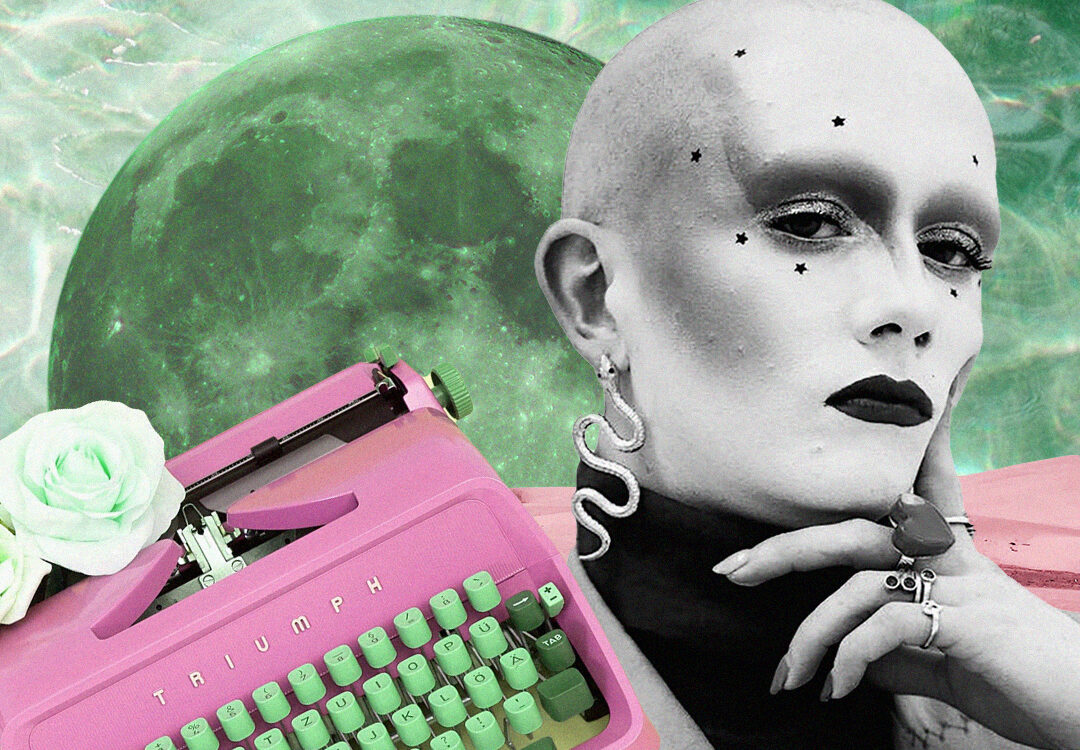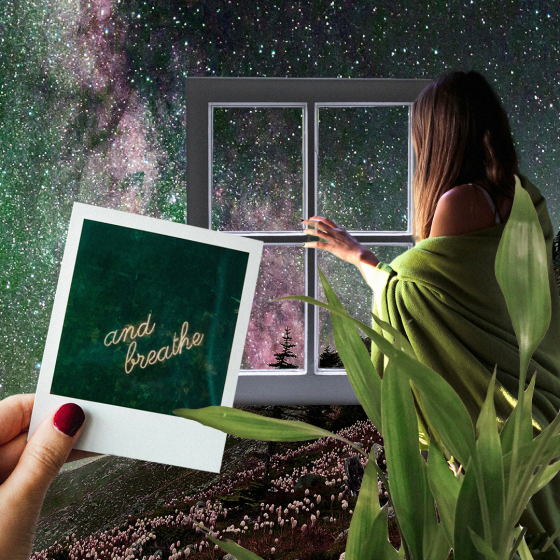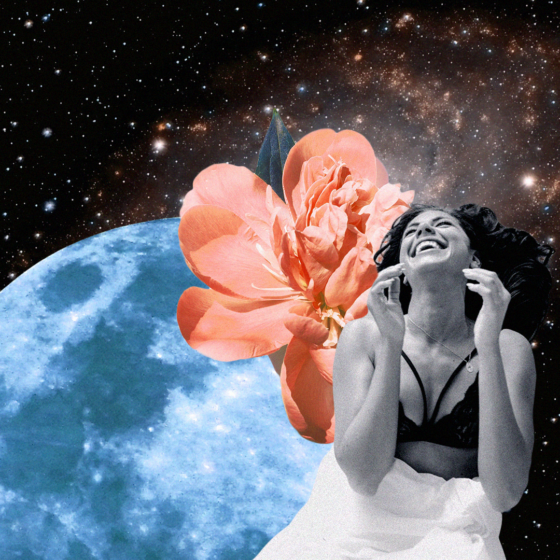Every week, we chat to an inspiring Restless Rebel in our newsletter, The Restless Reader. We dive deep to cover topics such as power, pleasure, success, and so much more. Here’s our chat with Jamie Windust from issue 4, first published in February 2020. You ready for it?
Tell us about your work…
I am a writer, public speaker and model. I am also a consultant mainly looking at the UK media and its inclusion and accessibility to LGBT people. Trans inclusion and representation is really important to me. Representation needs to be backed up with inclusion and opportunities, not just within media but within people’s chosen industries.
When do you feel at your most powerful?
When I get to see a project come together. When I am in a situation where something that I’ve been working on for a long time has come to fruition. I like feeling power, not in a dictator sense, but power in that I am making an impact. I think power for me isn’t always about control, but about influence. I like to see the power of the work that I create ripple out, rather than a managerial kind of power, that’s not really my style.
Restless or content?
I am always restless. I think when you work for yourself you have to be. I rarely meet freelancers who are content. Especially if you work in the media, it’s news based, so things can change really quickly, and you have to be adaptable. So I am restless, not in a way that I’ve got nothing to do, but I am always thinking, what’s next? Wondering how to elevate what I am doing.
What advice would you give to your 15-year-old self?
I think it’s important to remember that although you feel old, you’re not – and you still have a long way to go. I think I still have that a bit too. I need to remember that I am 22, even though I am doing a lot, I have this mindset that I need to do it all, now. At 15, you’re still at the start of everything, so it’s okay to take the pressure off yourself. At 15, you’re in education, maybe moving on to sixth form, or thinking ahead to college or uni, there’s a lot of changes ahead. So relax, actually be a bit restless, take time off, because you won’t have it as you get older. I know you want to be a grown-up, but as soon as you are, you won’t want it!
How do you identify?
I identify as queer and non-binary.
Do you think it is important to talk about yourself in those terms in the industry you work in?
Yes, in a way, but as writer, for example, you have a skill that doesn’t always have to be identity focussed. Just because you write about identity doesn’t mean you can’t write about something else. The one thing I will always say, if you talk about identity in your work, you should always be in charge of when you do that and why you are doing that. You should never be made to do that or presumed that you will do that, or pigeon-holed to speak about your identity all the time. There’s that classic idea of prefixing an award or a title with your identity. Now, if I am writing something that isn’t about my identity, I won’t mention it because sometimes you don’t need to. My experiences of being non-binary will come through in what I am writing about, I don’t have to essentially come out in the piece.
“Just because you write about identity doesn’t mean you can’t write about something else. And if you talk about identity in your work, you should always be in charge of when you do that and why you are doing that.”
How do you measure success?
Success, for me, is something that’s really hard to judge, there’s always more to be done. I think it’s a matter of whether or not I am proud of what I’ve done. My recent TED talk [Support for trans people isn’t radical – it’s urgent] was one of life’s big successes because not only was it something I was proud to speak about but it was a skill that I learnt. It was a four-month training process to be able to do that kind of talk. Things like that make you feel successful because it’s a skill that needs crafting.
How different are your expectations of your adult life from the reality?
I definitely didn’t expect to be doing what I am doing now. I am a visiting lecturer at my old university and one thing I always say when I go there is that we are socialised to think that we’re going to go into very traditional forms for work. I think I expected to go into a very traditional job and the job that I am doing now is in no way traditional. My expectations were one thing but I like that I have adapted and changed according to what I like. If I enjoy something, I try to make it work as my job. I try to not have too many expectations about what I am doing now because sometimes that changes or doesn’t come to fruition in a way that I think it might happen. Not in a messy way, but things change and you have to change with then.
Do you ever feel pressure?
There’s a pressure sometimes within the community to be a voice for everyone. I try and knock that on the head and say that’s not what I am here to do. I am not a voice for everyone. This is my voice and these are partly my experiences but I am also here to shine a light on other people’s experiences. People think that I am sharing the universal voice for everyone, whereas actually that just isn’t true.
Do you think it’s important to be completely honest on social media?
Yes, that’s one of the main ways that people engage with me. When I first started my page it was used as a diary, as I didn’t have anyone else to talk to. I didn’t have anywhere else to share what I was feeling. I have kept that ethos from when I was 16, when I first started. Now it’s like a community, a way to feel connected to people who aren’t necessarily geographically located near to you. I know it gets a bad rep, but social media can also curb the isolation that we feel as queer people in non-queer spaces.
“I know it gets a bad rep, but social media can also curb the isolation we feel as queer people in non-queer spaces.”
What do you think are the biggest challenges we face in society?
One of the big things I spoke about in my TED talk, which is still relevant now, is empathy. I feel like we are in a state of apathy. I think a lot of people still can’t empathise with other people and their struggles, because they have misconceptions or preconceptions or prejudices or unconscious bias and they just can’t get past that. For me, what is important is that we realise our struggles and our fights but also realise that we’re part of a community of people that sometimes have even worse struggles. Be an ally to people. We need to be allies more than ever.
We love to shamelessly embrace our guilty pleasures, what’s yours?
I take myself out for dinner far too often. And it is a guilty pleasure because it’s three or four times a week. I know how to cook, I should stay at home and cook, but I don’t. I like to feel fancy. And it’s always on my own, I rarely go with other people. I would rather go by myself. Being on my own is way more fun. I put a podcast on or watch Netflix.
What are you currently reading?
Michael Cashman, who is one of the founders of Stonewall, has just released a memoire called One Of Them. It’s about how he got involved with Stonewall, it’s really, really good. I also just read the book by Chanel Miller, who was the person at the centre of the Brock Tuner rape scandal, it’s called Know My Name. The whole time she was under an embargo not to be named, and now she’s written her own story about what actually happened. It’s amazing.









